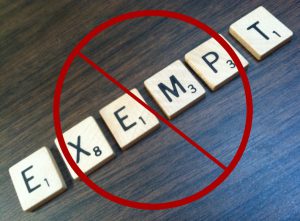Medicaid

The average cost of nursing home care in the Denver area is approximately $7,800 per month. Significant life savings can be diminished quickly in paying for nursing home care (aka long-term care). For many people, Medicaid often becomes the only option for paying for long-term care. Medicaid eligibility is based upon financial and medical need. An individual must meet three eligibility requirements to qualify for Medicaid for long-term care:

1) Categorical
2) Income
3) Resources.
In order to meet the Categorical requirement, an individual must require a nursing home level of care which is determined by the individual’s ability to conduct certain activities of daily living (ADLs).

Examples of ADLs include:
A) mobility
B) bathing
C) dressing
D) eating
E) going to the bathroom
F) transferring
G) need for supervision.

Generally, if the individual requires significant assistance with any two ADLs, he or she will meet this requirement. In order to meet the Income requirement, an individual’s gross income must fall at or below the income cap which in 2014 is $2,163 per month. In calculating income, you must include the individual’s income from all sources, including interest, dividends, Social Security, pensions, annuities and the individual’s Medicare Part B premium. If an individual otherwise qualifies for Medicaid, and, for example, has monthly income of $2,000, the individual retains the first $50 each month as a personal needs allowance. The remainder is applied to the cost of nursing home care. If an individual’s monthly income is over $2,163, that individual would not meet the income eligibility requirement and will not be eligible for Medicaid. However, the individual can establish an “income trust” (also known as a Miller trust) and qualify for Medicaid. If an individual applying for Medicaid is married, a portion of the individual’s income may also be payable to his or her spouse. Resources are divided into categories.
The categories are:
A) Countable
B) Exempt.
Exempt assets are not counted in determining Medicaid eligibility. In order to meet the Resource requirement, an individual applying for Medicaid cannot have “countable” resources of more than $2,000. If the individual is married, his or her spouse (called the “community spouse”), is entitled to countable resources up to the Community Spouse Resource Allowance (CSRA) which is $117,240. The main Exempt assets include the following: (i) primary residence, regardless of value, if married, if not married, equity up to $543,000 and intent to return to primary residence (subjective test), (ii) one vehicle, (iii) life insurance policies if the total face value does not exceed $1,500, (iv) household goods and personal effects (examples include furniture, appliances, computers, televisions, jewelry, etc.), and (v) irrevocable funeral and burial or cremation plan and burial plots. It is possible to transfer assets; however, gifts made by the individual or the individual’s spouse within the 60 month period prior to application may cause a period of ineligibility. The period is determined by dividing the value of the assets transferred by the average monthly cost of nursing home care and the commencement date for transfer penalties does not begin until a Medicaid application has been submitted. Gifts that occurred outside the 60 month look-back period are not considered.
